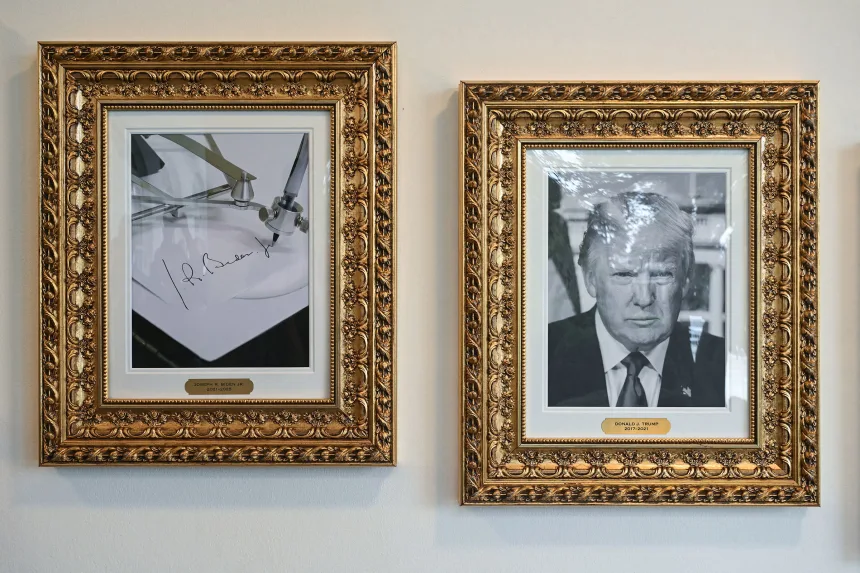A fresh political confrontation is unfolding in Washington, where a growing faction of Republicans is signaling an effort to invalidate several pardons issued during President Joe Biden’s tenure. Legal experts, however, argue that such a move would push the limits of constitutional authority and could reshape the boundaries of presidential power.
An Uncharted Legal Path
The U.S. Constitution grants the president broad and largely unchecked authority to pardon individuals for federal offenses, excluding matters tied to impeachment. The text spans less than a single sentence and does not require the president to personally sign pardons—or even demonstrate competency to do so. Presidential elections and the 25th Amendment, scholars note, serve as the nation’s mechanism to evaluate capability.
The proposition of voiding pardons on grounds of competency or method of signature is unprecedented at the federal level. The only remotely similar reference can be traced back to Virginia-era governance prior to the U.S. Constitution, when legislative disagreement led to the cancellation of pardons. Legal historians caution that comparing pre-constitutional state politics to the modern presidency is a distortion.
The Autopen Controversy
The dispute gained momentum earlier this year when former President Donald Trump declared that pardons signed by autopen—an authorized mechanical signature commonly used by modern presidents—should be considered invalid. Presidents of both parties have relied on the device, particularly when volume or logistics pose challenges.
The House Oversight Committee has since investigated whether Biden personally authorized each pardon. A report issued by Republican members of the committee alleges a “coverup” related to the president’s cognitive condition, implying that executive actions—including pardons—should be questioned without clear authorization records. Former officials who testified did not directly support claims of conspiracy, though some declined to answer on Fifth Amendment grounds.
Pardons for Allies and Family
Critics have focused heavily on pardons tied to Biden’s inner circle, including relief granted to his son, Hunter Biden, amid ongoing tax and firearm cases. Biden also issued preemptive pardons involving political adversaries of Trump, a move some Democrats now argue preemptively counters threats of political retaliation in a second Trump administration.
The political optics intensified after Trump recently granted clemency to a Chinese crypto billionaire aligned with his own business interests, adding fuel to a growing debate over how presidential clemency powers can be wielded.
Expert Analysis
Bernadette Meyler, a professor at Stanford Law School and scholar of pardon history, states that overturning federal pardons would require courtroom-proven evidence of bribery or fraud in obtaining clemency—an exceedingly high bar. Competency-based arguments, she adds, have no legal foundation.
“There’s no judicial precedent allowing a court to invalidate a pardon on claims that a president wasn’t competent,” Meyler notes. “Absent formal removal from office, presidential authority stands.”
If the Justice Department sought to challenge a pardon, its attorneys would need to pursue a declaratory judgment in federal court—something never attempted in this context.
Broader Concerns About Presidential Power
The pardon power has long been contested. In the late 19th century, sweeping rulings following the Civil War significantly expanded presidential discretion. Critics argue that modern partisanship has turned the pardon into a political weapon, further eroding public confidence in the justice system.
Still, Meyler warns against eliminating it entirely. Clemency, she argues, can correct judicial errors and temper prosecutorial excess.
Could the Supreme Court Step In?
If challengers attempt to void Biden’s pardons, the issue could land before the Supreme Court. But analysts suggest the justices are unlikely to narrow presidential authority—a standard that could easily harm future administrations, including Trump’s.
The Court’s recent decisions hint at broader interpretations of executive power, not narrower ones.
A Test of Constitutional Boundaries
Political observers see this confrontation as a symbolic struggle more than a likely legal victory. The inability of Congress to revoke pardons has long been considered fundamental to the separation of powers. Any serious attempt to alter that precedent could ignite a constitutional debate stretching far beyond the current news cycle.
For now, the rhetoric continues, but so do the legal realities: a president’s pardon power remains among the strongest authorities granted under American law—and it would require extraordinary judicial evidence to undo.

